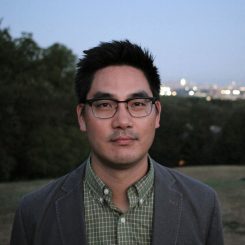December 10, 2020 - 11:00 AM - 1:00 PM
MIT CEEPR Virtual Associates Meeting
This CEEPR Associates Meeting will include a research presentation by Professor David Hsu on one of the papers from the Roosevelt Project –
Building the Energy Infrastructure Necessary for Deep Decarbonization throughout the United States (click to read full paper)
Abstract for Professor Hsu’s presentation:
The world must rapidly shift to clean energy sources in order to avoid causing additional, catastrophic damage to the climate. While there are many fierce debates about the nature, speed, and cost of the necessary energy transition, there is also fairly good agreement about what needs to be built to enable deep decarbonization throughout the United States. Based on this agreement, this paper therefore focuses on how and where the energy infrastructure necessary for deep decarbonization should be built. This paper first examines interactions between the private and public sectors in the building of past energy infrastructure systems, such as fossil fuel resources, large-scale hydropower, and the electric grid. This paper then examines past and present infrastructure policies in order to consider how local and regional capacity to build, operate, and maintain infrastructure can be better aligned with national-level goals. Finally, in order to analyze where this new infrastructure should be built, this paper identifies distinct regions for further proposals and study using a mapping layer analysis of existing fossil fuel infrastructure, renewable energy potential, and present and future climate risks. The paper concludes with a summary and synthesis of key findings.



